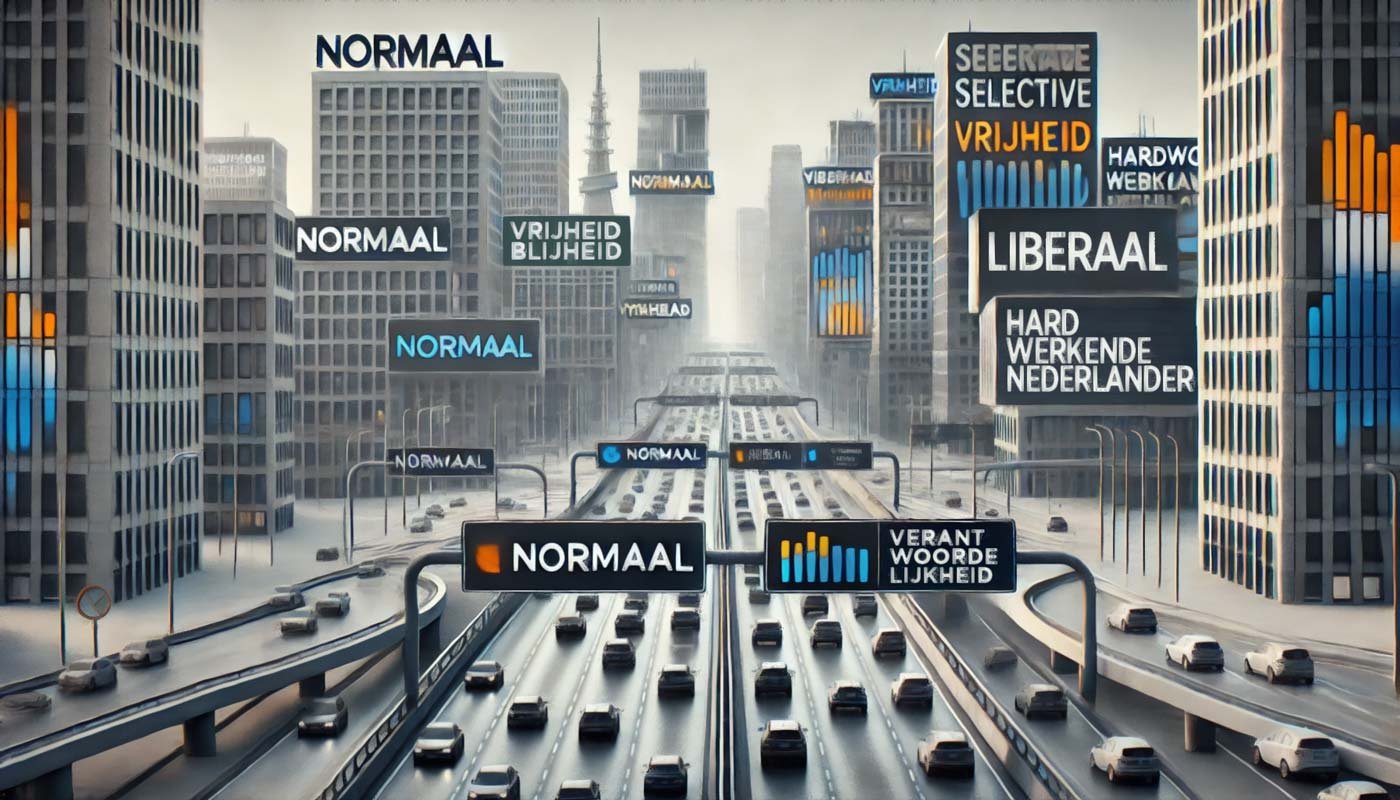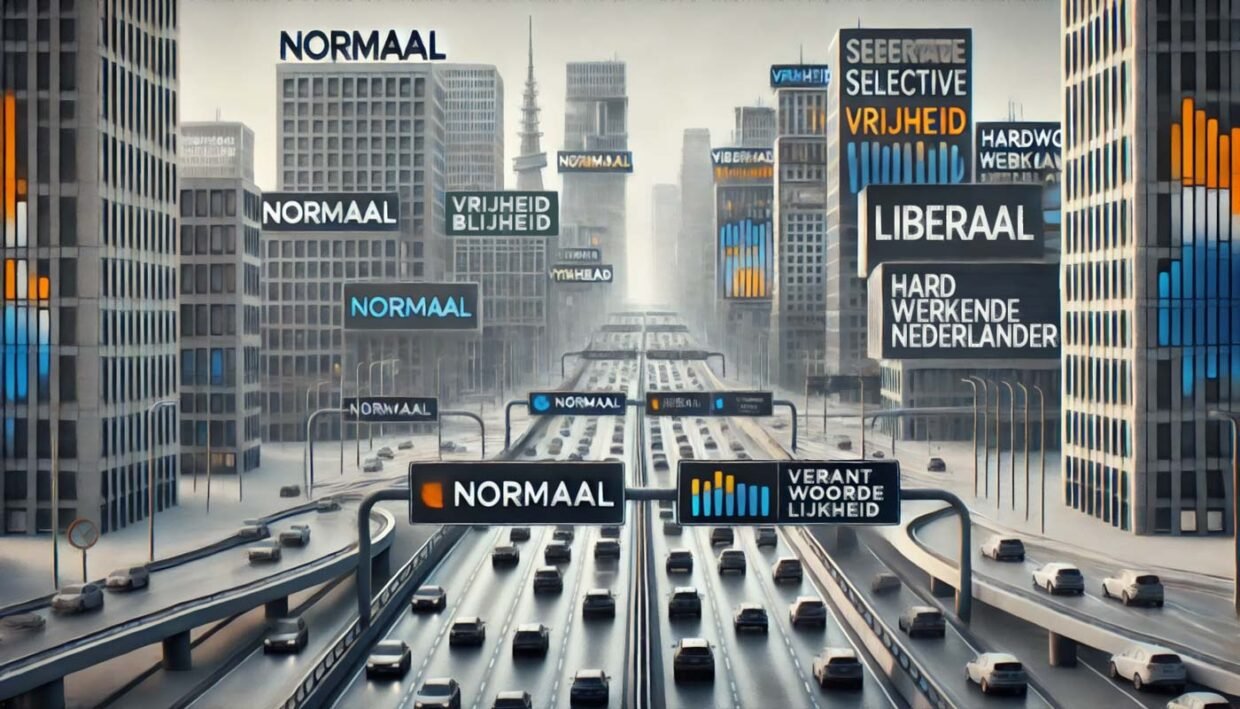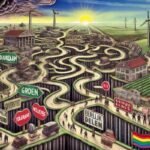
- arrow_back Home
- keyboard_arrow_right The Exploration
How the VVD itself laid the breeding ground for democratic distrust

The Exploration Jeroen Schepens 13 March 2025
Last week, Klaas Dijkhoff appeared in an interview (link to Dutch article) with Maarten van Rossem, claiming that the real political divide is no longer between left and right, but between democrats and non-democrats. At first glance, that sounds hard to argue with. The VVD now presents itself as a defender of democracy — but wouldn’t it make more sense to first examine why trust in that very democracy is eroding?
More and more people distrust government. They experience politics as a closed circuit. People feel that their voice has little influence and decisions are imposed from above without regard to their daily lives. This sentiment has not come out of nowhere, and it is not just populists who are fueling it. Distrust has a foundation, and that foundation was laid in large part by decades of VVD policies.
Ask a VVD voter about their choice, and chances are you’ll get a familiar answer: “freedom, responsibility and the hard-working Dutchman.” These are the core values with which the party has identified for years. In practice, the government increasingly treats citizens as potential fraudsters. At the same time, the market leaves less and less room for those who are not on the right side of the balance. Years of dismantling the public sector and social safety nets has consequences. Citizens experience bureaucratic mills that distrust them. Not surprisingly, many people are turning away from “the system.
In my previous article, The well-meaning aberration of the traditional left, it was about how the left gets in its own way by clinging to old recipes and a rigid enemy image of capitalism. But anyone talking about political lostness cannot avoid the VVD. For while the left tries in vain to restore old certainties, the VVD has managed to anchor its own position through a different kind of nostalgia. That of the self-reliant citizen in a country where government is merely a necessary evil. A narrative that, however attractively packaged, contributes directly to growing democratic distrust.
Cultivated distrust: a self-fulfilling crisis
There is a persistent perception that government is inefficient, bureaucratic and unreliable. And fair is fair: that image has not come about without reason. The benefits affair, failing implementing agencies and a callous Tax Administration have undermined confidence in the government. Citizens do not feel helped, but treated as adversaries.
Who cleaned out the government? Who has been cutting public services for years? And who replaced the human dimension with control mechanisms and sanctions? Right: the VVD. “A smaller government” sounded like a logical idea. In practice, it meant something else: a government that helped citizens less, but controlled them more strictly as taxpayers.
The result? A self-fulfilling crisis: first, government is made unworkable. Then that failure is used as an argument to push her back even further. The bigger the problem, the firmer the justification for the next round of privatization and market forces. And so democratic distrust grows, not coincidentally the breeding ground on which the VVD flourishes.
The Irony of “One Size Fits All”
The idea of “one size fits all” is music to VVDers’ ears: the same opportunities for everyone, the same rules, no exceptions. It sounds reasonable, until you see how this works in practice.
For citizens, it means: no exceptions. Pay taxes neatly, bear your own risks, keep your own pants on. For large corporations, it means tax shortcuts, customization schemes and an army of lobbyists who bend legislation to their will.
So the fact that government has become increasingly control- and distrust-based does not apply to everyone. The benefits affair was a textbook example of a government that controlled low-income citizens with meticulous precision, while multinationals rigged tax structures that no civil servant could get a grip on. And yet in VVD rhetoric, both groups are grouped under the same banner of freedom and responsibility.
Freedom as rhetoric: The sham freedom of the VVD
The VVD sells freedom as the central theme of its policies. But for whom is this freedom intended? For large corporations, it means tax shortcuts and tax avoidance as a national sport. For citizens, it mainly means paying your own health care costs, taking care of your own retirement and, above all, not counting on the government when things get tough.
Classical liberalism was about individual freedom in a society where the government is there to protect that freedom. But the VVD has made “liberal” mean that those with power and money are free to dictate the rules, while the rest are left to fend for themselves.
Milton Friedman and the forgotten leaflet
Milton Friedman, the ideological founder of neoliberalism that the VVD likes to invoke, once advocated a basic income (in the form of a negative income tax) as a fundamental condition for a free market. He recognized that a market without any social security ultimately digs its own grave.
The VVD seems to have missed that passage from the neoliberal handbook for a moment. Instead, we see a selective interpretation in which fiscal shortcuts and the dismantling of public services predominate. As if someone only read the headlines of the book and left the insert unopened.
If the VVD had really followed Friedman’s thinking, it would now be advocating basic economic security that prevents freedom from becoming a privilege rather than a right. But that part of the philosophy is lost in the political translation.
Cynicism as a guide: trust as a commodity
Perhaps the most remarkable thing about the VVD is that it has spent years cultivating democratic distrust in government, only to use that same distrust as an argument for yet more market forces. The greater the failure of the public sector, the stronger the call for privatization and outsourcing.
What is not told is that these policies always confirm the same message: the government can’t do it, so let’s leave it to the market. And so a vicious circle is created in which government keeps eroding itself and more and more people drop out.
Dijkhoff is right to say that democracy must be defended. But that does not begin with a rhetorical battle against populists. That starts with restoring trust in a government that functions for citizens rather than against them.
Liberalism once coupled freedom with responsibility and protection from abuse of power. The VVD has now reduced the concept to a right for the strongest to maintain their power. Freedom is no longer a fundamental principle, but a luxury to be afforded.
Social Capitalism as an alternative?
Just as the VVD selectively interprets liberalism – which in practice is mostly neoliberalism is – so does that same neoliberalism apply capitalism selectively. Not as a system of innovation and broad prosperity, but as a mechanism in which the strong are free to maintain their power. The result is short-termism, exploitation and an economy that runs on profit maximization rather than value creation.
What if we redefined capitalism, not as an ideology, but as a valuation system that works for everyone?
That is exactly what Social Capitalism is: an economic vision in which market freedom and social justice reinforce rather than exclude each other. A system in which economic rules of the game are not just written by those with the most power, but are in the service of broader prosperity.
If the VVD really wants to defend democracy, it should start by restoring trust in the institutions that carry it. This does not mean less government, but better government. And perhaps also a critical look at her own role in the process that brought us here.
© TheSocialCapitalist / Jeroen Schepens. Alle rechten voorbehouden.

